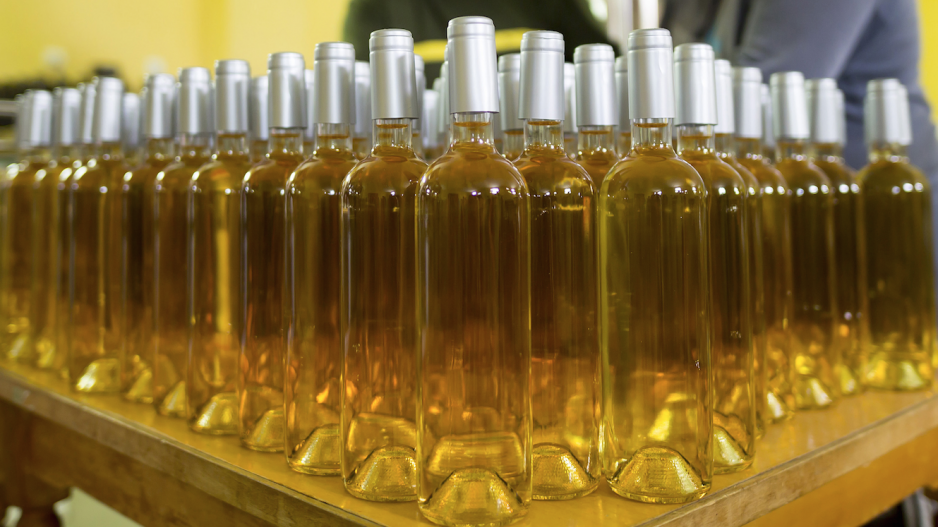Clarity on the limits of free trade between Canadian provinces is likely to follow the Supreme Court of Canada hearing submissions in the R. vs. Gerard Comeau case on December 6 and 7.
B.C. winery owners, cannabis dispensary operators, provincial attorneys general, lawyers and others are eagerly awaiting their day in court even though the verdict may not be released until deep into 2018.
While the case specifically deals with New Brunswick resident Comeau, who in 2012 was fined after being caught transporting 14 cases of beer and three bottles of liquor to his home province from Quebec, the significance of the case lies in how Canada’s top court interprets Section 121 of the Canadian Constitution.
Comeau successfully appealed his $292.50 fine in April 2016, when New Brunswick provincial court judge Ronald LeBlanc ruled that it is unconstitutional for New Brunswick to have a law requiring its residents to buy alcohol only from New Brunswick Liquor Corp.’s licensed outlets.
LeBlanc pointed to Section 121 of the Canadian Constitution, which says “all articles of the growth, produce, or manufacture of any one of the provinces shall, from and after the union, be admitted free into each of the other provinces.”
Coulson Litigation lawyer Shea Coulson told Business in Vancouver that the case the top court will hear has two components. First, the nine justices must decide how to apply the Constitution’s Section 121. Second, the court will rule on whether New Brunswick’s law meets the legal standard that the court applies for Section 121.
“The court has to analyze this [New Brunswick] provision and say, ‘Is it unconstitutional?’ or, ‘Are parts of it unconstitutional – and to what extent?’” said Coulson, who represents five B.C. wineries that are interveners in the case – Liquidity Wines Ltd., Painted Rock Estate Winery Ltd., 50th Parallel Estate Winery, Okanagan Crush Pad and Noble Ridge Vineyard & Winery.
The Constitution gives provinces the power of direct taxation, and Coulson said that nothing in the top court’s decision will change that.
“The provinces could impose direct taxation if they wanted,” he said.
“The purpose of this case is to ensure non-discriminatory taxation. If a province imposes a tax, it would have to be the same for producers, wherever they are from in Canada.”
Coulson, however, added that it’s not clear how taxes on goods purchased across provincial boundaries are to be reported, remitted and collected, and which jurisdictions will receive the tax.
“That’s an issue that goes beyond wine,” he said.
“That’s an e-commerce issue that will eventually get resolved.”

(Image: Coulson Litigation lawyer Shea Coulson represents five B.C. wineries that are interveners in the R. vs. Comeau court case | Rob Kruyt)
The B.C. government, for example, is likely to want to collect some tax every time an Ontario resident buys a bottle of B.C. wine, given that the B.C. government provides grants and incentives to help the wine industry. B.C. wineries that sell wine online, for example, do not pay a provincial markup on that price.
The situation for many B.C. wineries is that they will ship across Canada but they treat the buyer as a B.C. resident and they pay B.C. taxes on the wine.
The only provinces that have changed laws to allow residents to buy Canadian alcoholic products online from other provinces are B.C., Manitoba and Nova Scotia. However, sales to all provinces are arguably legal under a federal law stemming from a private member’s bill moved by Okanagan MP Dan Albas.
The legal uncertainty over such sales does not stop Quails’ Gate Estate Winery CEO Tony Stewart from shipping to other provinces, he told BIV.
“There’s a fair amount of ambiguity of what is allowed to be shipped interprovincially,” he said.
“If I were a betting man, I would say that the situation will be that the court will rule in favour of the Constitution and wine shipments for each province will have to be done in accordance with each provincial set of laws.”
That would be like the situation in the U.S., where Stewart’s family owns Lake Sonoma Winery as well as the wine brand Valley of the Moon at Madrone Estate.
The Stewarts’ U.S. wineries ship to 38 states and use the third-party web application ShipCompliant to calculate how much tax is owed to each state and to have all orders billed accordingly.
“Most of the wineries eat [the cost of the extra tax],” Stewart said.
“It’s not a very large amount. You wouldn’t have to pay state tax for the state of California because you shipped it to Connecticut. So you would save 7.5% right there on the shipment.”
B.C.’s largest wine producer, Arterra Wines Canada Inc., which bought Laughing Stock Vineyards last week, follows all provincial laws, company president Jay Wright told BIV.
“We do ship to provinces where we are allowed and we pay all the taxes in that province, so that allows us to do it within the regulations,” Wright said.
“It’s hard to speculate” how the Comeau decision will affect business, Wright said.
“I’m a believer in free trade. I think free trade has worked well for our country in many different ways. This isn’t just about alcohol. It’s about free trade in a lot of different categories.”
Comeau decision to affect cannabis sales
Vancouver’s Cannabis Culture dispensary chain is also intervening in the Comeau case. Its lawyer, Kirk Tousaw, told BIV that a decision on whether the provinces must allow e-commerce sales is particularly important to the cannabis sector because provinces such as Ontario, Quebec and New Brunswick plan to restrict sales exclusively to government stores.
“It’s very important for the development of the cannabis industry to get rid of some of these interprovincial trade barriers,” Tousaw said.
“If you went back in time 80 years and started from scratch, maybe provincial monopolies would make some sense. But we’re not there. We’re where there’s an existing either black- or grey-market industry providing cannabis to Canadians all over this country with established storefronts in most provinces.”
Coulson, however, said that the court’s decision will not be as simple as saying “free trade is allowed” or “free trade is not allowed.”
The top court may allow provinces to keep a volume limit as a way to ensure that the consumption is for personal use and not for commercial resale.
It also may allow provinces to treat Canadian-made alcoholic beverages differently than cannabis.
“Alcohol is different because it has been legal for so long that we’re not worried about organized crime in alcohol right now,” Coulson said.
“So there are reasons for provinces to be more restrictive [with cannabis].”
Tousaw, in contrast, sees the presence of a black market in cannabis as even more reason for the top court to force provinces to allow free trade because any restrictions against the free flow of cannabis will only stimulate the black market.
Medical marijuana sold online already flows across provincial boundaries. •




